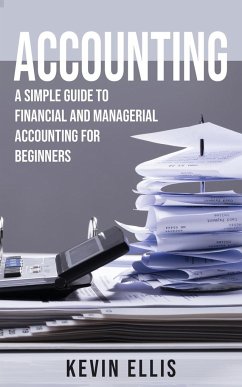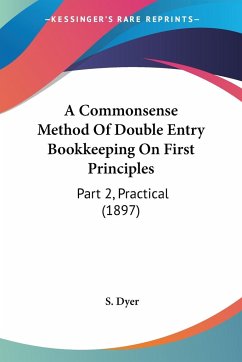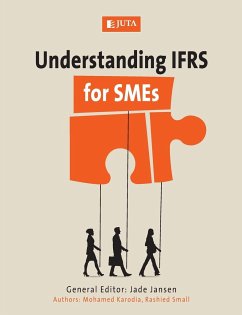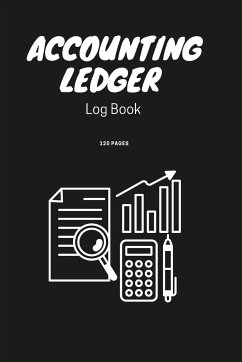
Core Principles of Accounting
Versandkostenfrei!
Versandfertig in 1-2 Wochen
17,99 €
inkl. MwSt.

PAYBACK Punkte
9 °P sammeln!
This book, written by eight prolific authors who have cumulative industry and university teaching experience spanning several decades, is about the 'core principles of accounting' that form the foundation on which complicated and legalistic accounting rules and concepts solidly stand. The book features 15 comprehensive chapters: Chapter 1 documents the barter system of trade and reflects on the system of account in African communities. Chapter 2 introduces important changes in the revised framework of financial statements. Chapter 3 discusses the principles of conversion costs, allocation of f...
This book, written by eight prolific authors who have cumulative industry and university teaching experience spanning several decades, is about the 'core principles of accounting' that form the foundation on which complicated and legalistic accounting rules and concepts solidly stand. The book features 15 comprehensive chapters: Chapter 1 documents the barter system of trade and reflects on the system of account in African communities. Chapter 2 introduces important changes in the revised framework of financial statements. Chapter 3 discusses the principles of conversion costs, allocation of fixed costs and valuation of inventory at year end. Chapter 4 provides a simplified explanation of financial instruments and share capital. Chapter 5 is concerned with International Financial Reporting Standard (IFRS) 15. Chapter 6 delineates important definitions, recognition criteria and disclosure of provisions, contingent liabilities and contingent assets. Chapter 7 deals with International Accounting Standard (IAS) 38 on intangible assets. Chapter 8 discusses the use of the statement of cash flows. Chapter 9 expounds the definitions of relevant terms in accounting for foreign transactions. Chapter 10 gives with exemplars the definitions of property, plant and equipment in accordance with IAS 16. Chapter 11 explains accounting treatment of government grants and how accounting policy makes a difference. Chapter 12 deals with IAS 36, a standard governing measurement and disclosure of impairment of assets. Chapter 13 describes the process of critical evaluation of financial information contained in financial statements. Chapter 14 enunciates the concepts of transactions and accounting treatment of taxes according to IAS 12. Chapter 15 explicates the underlying principles of IAS 10, the standard on events after reporting period. This book provides a valuable window on core principles of accounting with many practical examples. It also gives a timely glimpse into the future of accounting. It exposes a glaring oversight of accounting that has plagued the industry and business world for decades. Effective communication of accounting principles and the demonstration of their practical application to students are simultaneously challenging and stimulating. Students should learn the principles with great enthusiasm, tenacity and dedication in order to apply their acquired knowledge and skills. In the burgeoning context of global hyperconnectivity, interdependence, knowledge economy and the fourth industrial revolution, it is essential to provide accounting practitioners, both professionals and students, with the tools to survive and thrive on the ever widening frontiers of the accounting discipline.












